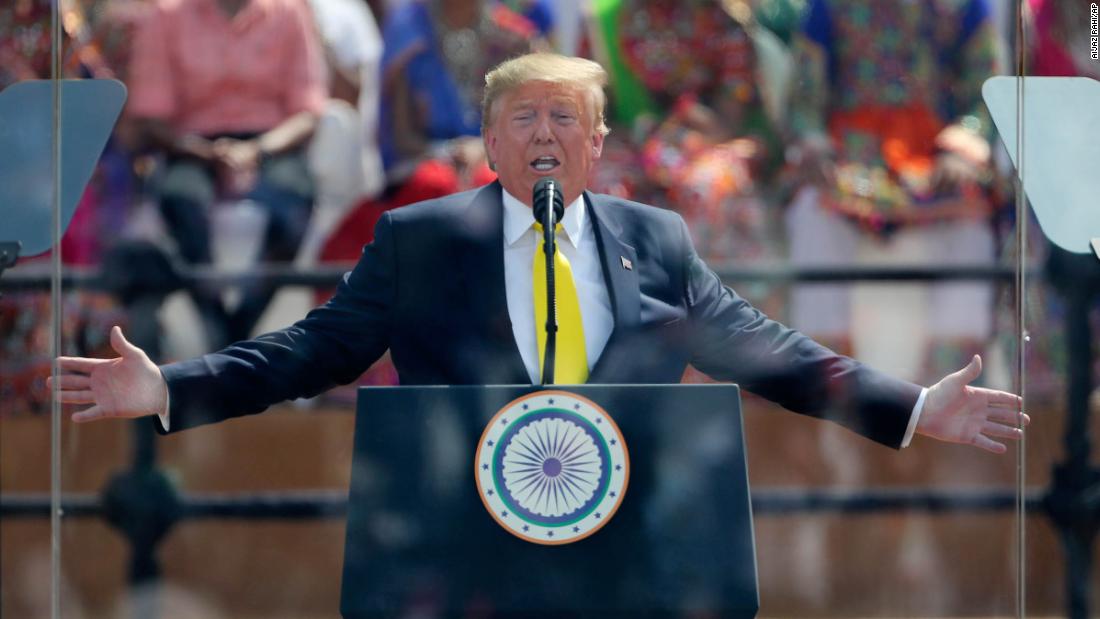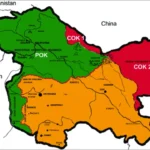Washington, D.C. – In a notable shift from his earlier assertive diplomatic posture, former U.S. President Donald Trump appears to have taken a step back from his previously vocal role in mediating tensions between India and Pakistan, as both South Asian neighbors edge closer to direct conflict.
Speaking at a conservative think tank event in Texas on Wednesday, Trump refrained from offering mediation or direct involvement, instead urging “both sides to show strength but also great wisdom.” The comment contrasts sharply with his 2019 and 2020 statements in which he had openly offered to mediate the Kashmir dispute—offers that were publicly rejected by New Delhi at the time.
🔥 A Region on the Brink
The former president’s softened stance comes just days after India launched a precision military operation, “Operation Sindoor,” targeting what it called terror infrastructure in Pakistan-administered Kashmir. The strikes were in response to the deadly Pahalgam terror attack that claimed 28 civilian lives on Indian soil. The Pakistani government, on its part, has labeled India’s response a “violation of international norms” and hinted at retaliatory measures.
As ceasefire violations surge across the Line of Control (LoC), international stakeholders, including the United Nations and the European Union, have urged both nations to de-escalate. Trump, however, offered a more ambiguous tone: “We hope they work it out. India is strong. Pakistan is important. We need peace, but that’s their issue to solve.”
🏛️ Diplomatic Distance or Political Strategy?
Analysts believe Trump’s recent hesitation could be tied to his current political positioning. As the 2024 U.S. presidential runner-up with intentions to remain relevant on the global stage, he may be treading cautiously to avoid alienating Indian-American voters—a key demographic that largely supported his administration’s pro-India policies.
“He’s trying to maintain influence without appearing to pick sides,” said Dr. Kavita Mehra, an expert on international affairs based at Georgetown University. “It’s a classic Trump recalibration—loud on rhetoric but quiet on responsibility when the stakes are high.”
🧭 What This Means for South Asia
Trump’s strategic ambiguity may reflect a broader reluctance within the U.S. political establishment to entangle itself in another complex regional conflict. President Joe Biden’s administration has so far remained measured in its response, calling for restraint while reaffirming America’s strategic partnerships with both nations.
Meanwhile, in India and Pakistan, the perception of U.S. disengagement is stirring fresh debates about national sovereignty, regional diplomacy, and the limits of international intervention.
🌐 The Road Ahead
While Trump’s current position may reflect a desire to avoid controversy, critics argue that global leaders must take a firmer stand to prevent further bloodshed in the region. Calls for diplomatic pressure, third-party peacekeeping, and international mediation continue to grow louder, even as the situation on the ground remains dangerously fluid.
In the end, Trump’s backpedaling serves as a reminder of the fragile and often fickle nature of global diplomacy—especially when it involves two nuclear-armed neighbors with a decades-long history of conflict.




